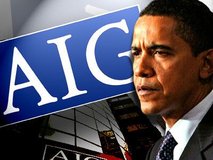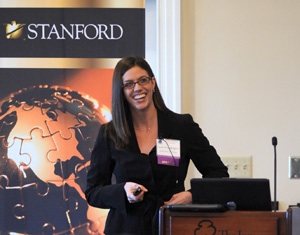Reported on in Bloomberg…(see the full article here).
The former Chief Executive Officer of Bank of America, Kenneth Lewis was sued by New York Attorney General Andrew Cuomo for supposedly defrauding investors and the government when buying Merrill Lynch & Co. Recently, the bank agreed to pay $150 million to settle a related lawsuit by U.S. regulators  which is being considered by U.S. District Court Judge Jed Rakoff. Last year, Rakoff called the SEC’s initial settlement neither fair nor reasonable and questioned why the bank’s executives and lawyers weren’t sued. The agency said it lacked evidence to bring claims against specific individuals.
which is being considered by U.S. District Court Judge Jed Rakoff. Last year, Rakoff called the SEC’s initial settlement neither fair nor reasonable and questioned why the bank’s executives and lawyers weren’t sued. The agency said it lacked evidence to bring claims against specific individuals.
Cuomo also sued the bank’s former chief financial officer Joe Price and the bank itself for not disclosing about $16 billion in losses Merrill had incurred before it was bought by Bank of America in an effort to get the merger approved. Afterward, Lewis demanded government bailout funds, Cuomo said.
“We believe the bank management understated the Merrill Lynch losses to shareholders, then they overstated their ability to terminate their agreement to secure $20 billion of TARP money, and that is just a fraud,” Cuomo said yesterday during a telephone press conference. “Bank of America and its officials defrauded the government and the taxpayers at a very difficult time.”
Interestingly enough, Cuomo is pursuing individuals at the bank while the SEC has declined to do so. The suit is being filed under the Martin Act, a New York securities law that permits both civil and criminal penalties.
Cuomo said he coordinated efforts with the SEC. “Our case will bring individuals to justice and will make a point to people that this is a very serious matter,” he said yesterday. “When you settle a case the way the SEC is settling today, the upside is you implement immediate regulatory reforms.”
Last month, the SEC expanded its claims against the bank, accusing it of failing to disclose Merrill Lynch’s mounting losses before holding a shareholder vote on the acquisition.
The proposed fine would be distributed back to harmed shareholders, the SEC said yesterday.
The SEC settlement “addresses the judge’s concerns of penalizing shareholders so it’s likely to pass muster,” said Peter Henning, a law professor at Wayne State University in Detroit. “At the same time, it’s hard to show any monetary damage to shareholders at this point because the Merrill deal has turned out to be a good acquisition for the bank.”
The conduct of Brian Moynihan, the bank’s current chief executive, is not under investigation, said David Markowitz, Cuomo’s special deputy attorney general for investor protection. Moynihan, who became general counsel in the middle of events, was candid with Cuomo’s office in the probe, Markowitz said.
According to the complaint, Lewis and his lieutenants Moynihan and Price calculated that if they threatened “to get out of the deal, the federal government would counter with more taxpayer funds out of a concern for the greater economy.”
The U.S. injected $45 billion into Bank of America through the purchase of preferred shares, including $20 billion approved after the acquisition in January 2009 to keep the deal from collapsing. The bank redeemed the shares in December.
“We find it regrettable and are disappointed that the NYAG has chosen to file these charges, which we believe are totally without merit,” the bank said in a statement. “In fact, the SEC had access to the same evidence as the NYAG and concluded that there was no basis to enter either a charge of fraud or to charge individuals. The company and these executives will vigorously defend ourselves.”
Lawyers for Lewis and Price denied wrongdoing. “The allegation that Mr. Price deliberately caused Bank of America to withhold from shareholders information they were entitled to know is utterly false,” said William H. Jeffress Jr. and Julia E. Guttman of Baker Botts LLP in Washington, in a statement.
SOME QUESTIONS TO CONSIDER:
Is the decision to sue Mr. Lewis and other Bank of America Executives by Mr. Cuomo a political move that has more to do with advancing political aspirations than bringing justice? Or, is Mr. Cuomo the only person to have the fortitude to bring justice to an unethical action by BofA executives?
“The decision by Mr. Cuomo to sue Bank of America, Mr. Lewis and other executives in connection with BofA’s acquisition of Merrill Lynch is a badly misguided decision without support in the facts or the law,” said Mary Jo White of Debevoise & Plimpton LLP in New York, who represents Lewis. “There is not a shred of objective evidence to support the allegations by the Attorney General.”
Bank of America agreed to buy Merrill on Sept. 15, 2008, after just 25 hours of due diligence, according to the suit. When the board of directors met that day to approve the transaction, they thought they were going to buy Lehman Brothers Holdings Inc., the suit says.
WOW…is that true? If so, and it is proven, then one would have to wonder about not only Mr. Lewis actions, but the actions of the Board of Directors. Who makes a decision like this with only 25 hours of due diligence?
Cuomo said Bank of America scheduled a shareholder vote to approve its plan to buy Merrill on Dec. 5, 2008. By that date, Merrill incurred losses of more than $16 billion, Cuomo said. Bank of America’s management, including Lewis and Price, knew of the losses and knew that more were coming, Cuomo said.
After the merger was approved, Lewis told federal regulators the bank couldn’t complete the deal without a taxpayer bailout because of accelerated losses from Merrill, Cuomo said. However, between the time the shareholders approved the deal and the time Lewis sought the bailout, Merrill’s losses only increased by $1.4 billion, Cuomo said.
Greed, Hubris
“The conduct of Bank of America, through its top management, was motivated by self-interest, greed, hubris, and a palpable sense that the normal rules of fair play did not apply to them,” Cuomo said in the lawsuit. “Bank of America’s management thought of itself as too big to play by the rules and, just as disturbingly, too big to tell the truth.”
But wait…is Bank of America the only culprit in this grand scheme? We (the taxpayers) lost substantially more with AIG, so where is Mr. Cuomo when it comes to that grand deception? I respect the grandstanding claiming “greed and hubris” but I’m not sure why the BofA – Merrill merger is being focused on when there seems to be much bigger fish to fry. Any help here?
The suit claims Bank of America received more than $20 billion in taxpayer aid as a result of their misleading efforts. Cuomo’s statement said the bank can’t explain why they didn’t disclose the losses to shareholders though the merger “would have threatened the bank’s very existence if there had been no taxpayer bailout.”
Cuomo also claims management failed to disclose to shareholders it was allowing Merrill to pay $3.57 billion in bonuses. Nor did the bank’s management tell the bank’s lawyers about the extent of Merrill’s losses before the shareholder vote.
Here’s what appears to be the sad truth… Lewis will be defended by attorney’s for Bank of America. BofA received bailout money. Merrill is now part of BofA. And, even if found guilty, more than likely any fines assessed will be paid from BofA’s insurance. Perhaps…this is all posturing for something else. Bank of America likely was wrong, but I’m not sure that Attorney General Cuomo is truly motivated by bringing justice…
But then again…I could be wrong. YOUR THOUGHTS?



 Posted by chuckgallagher
Posted by chuckgallagher 


 How many adjectives can we use to describe the feelings associated with the news that AIG paid $165 million in bonuses when the Federal Government spend over $170 Billion – yes, that is Billion, in bail out money to save the ailing giant?
How many adjectives can we use to describe the feelings associated with the news that AIG paid $165 million in bonuses when the Federal Government spend over $170 Billion – yes, that is Billion, in bail out money to save the ailing giant?
 obstructed a government proceeding. Appearing before a federal magistrate in Houston on Friday, Pendergest-Holt is accused of making “several affirmative misrepresentations” to SEC investigators who were seeking to learn about a scheme to defraud investors and account-holders of billions of dollars in deposits.
obstructed a government proceeding. Appearing before a federal magistrate in Houston on Friday, Pendergest-Holt is accused of making “several affirmative misrepresentations” to SEC investigators who were seeking to learn about a scheme to defraud investors and account-holders of billions of dollars in deposits.








